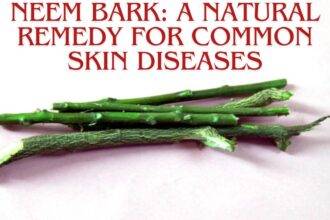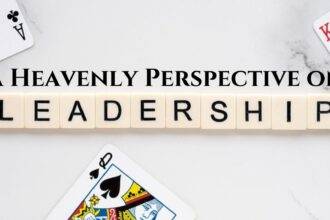Introduction:
The Link Between Emotions and Alcohol: Happy,Sad,Stress-Induced Drinking
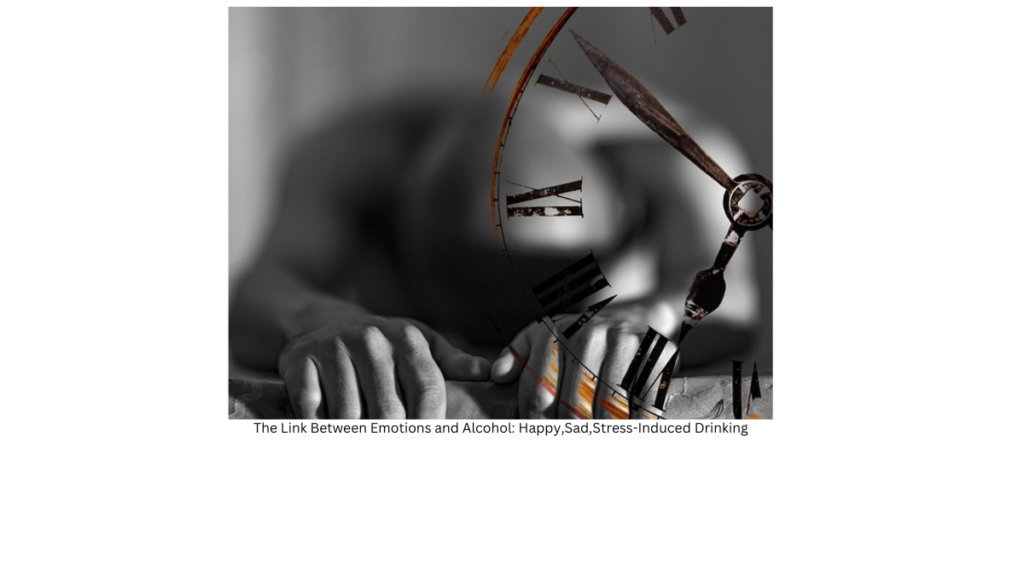
In the complex web of human emotions, it’s no secret that alcohol often plays a role in how we cope with life’s highs and lows. Whether it’s celebrating a joyous occasion, drowning sorrows in times of sadness, or numbing the effects of stress, the relationship between emotions and alcohol is both fascinating and deeply ingrained in our culture. This article explores this connection, shedding light on why people turn to alcohol when they’re happy, sad, or stressed.
What is the link between Emotions and Alcohol?
Happy Hour: Celebrating with a Drink
The Joy of Social Connection
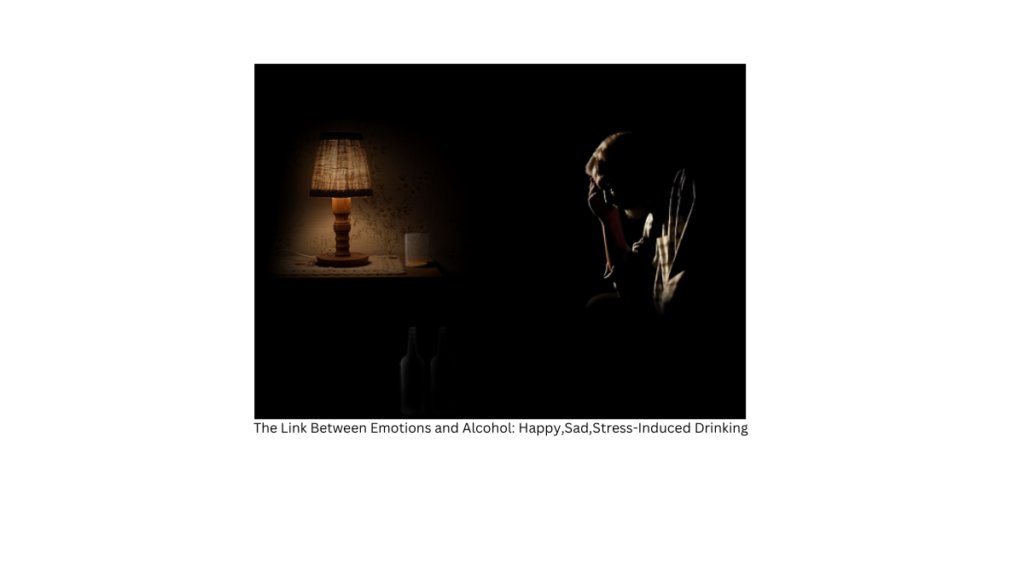
One of the most common scenarios that link happiness to alcohol is celebrating happy occasions. Whether it’s a wedding, a promotion, or a simple gathering with friends, raising a toast is a common way to mark moments of joy. Alcohol often serves as a social lubricant, helping people relax and bond with one another. Sharing a drink can enhance the sense of connection, making celebrations more enjoyable.
The Neurochemistry of Happiness and Alcohol
When we experience happiness, our brains release neurotransmitters like dopamine, which are associated with pleasure and reward. Alcohol can amplify this effect, creating a feeling of euphoria. This is why some individuals may be drawn to alcohol when they’re already in a happy mood – they seek to enhance their positive emotions.
Moderation is Key
While celebratory drinking can be a part of many cultures and social traditions, it’s important to remember that moderation is crucial. Overindulging in alcohol during moments of happiness can lead to excessive drinking, which can have negative consequences for health and relationships.
Drowning Sorrows: Alcohol as a Coping Mechanism for Sadness
Seeking Comfort
When people are overwhelmed by sadness or facing a personal crisis, they may turn to alcohol as a form of self-medication. The numbing effect of alcohol can provide temporary relief from emotional pain, allowing individuals to escape from their troubles for a while.
The Downside of Self-Medication
Using alcohol to cope with sadness can be a slippery slope. While it may offer short-term relief, it doesn’t address the root causes of sadness and can often exacerbate feelings of depression and anxiety in the long run. It can also lead to a dangerous cycle of dependence.
Seeking Support
Instead of relying on alcohol to cope with sadness, seeking support from friends, family, or mental health professionals is a healthier and more sustainable way to deal with emotional pain. Talking about your feelings and addressing the underlying issues can lead to long-term healing.
Stress-Induced Drinking: Escaping the Pressure
Stress and the Fight or Flight Response
Stress is an unavoidable part of life, and our bodies are wired to respond to it through the fight or flight mechanism. In modern times, however, we often can’t fight or flee, so we seek other ways to cope. For some, alcohol becomes a coping mechanism to escape the pressures of daily life.
A Temporary Escape
Alcohol’s sedative effects can provide temporary relief from stress. It can help people relax, unwind, and temporarily forget their worries. However, this relief is often short-lived and can lead to a cycle of dependence if not managed carefully.
Healthier Stress Management
While it’s natural to seek relief from stress, there are healthier ways to manage it. Engaging in regular exercise, practicing mindfulness, seeking therapy, or even pursuing hobbies and interests can help reduce stress in a sustainable way without the negative consequences associated with alcohol use.
What happens to your emotions when you drink alcohol?
Alcohol can have a significant impact on emotions and mood, and the effects can vary depending on the individual, the amount consumed, and the context. Here are some ways in which alcohol can affect emotions:
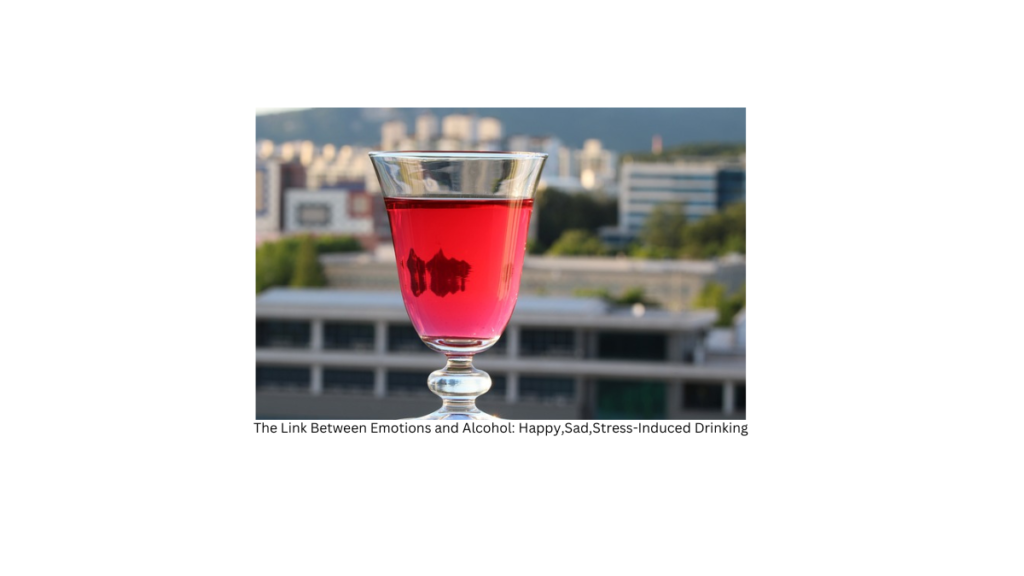
- Euphoria and Relaxation: In moderate amounts, alcohol can lead to feelings of euphoria, relaxation, and reduced inhibitions. It can temporarily relieve stress and anxiety, making people feel more social and confident.
- Depression and Sadness: On the other hand, excessive alcohol consumption or drinking in a negative emotional state can lead to increased feelings of depression, sadness, or even anger. Alcohol is a depressant, and it can amplify pre-existing negative emotions.
- Irritability and Aggression: Some people may become irritable or aggressive when they consume alcohol, particularly when they drink heavily. Alcohol can impair judgment and self-control, leading to impulsive and aggressive behavior.
- Emotional Lability: Alcohol can cause emotional lability, which means that a person’s emotions may swing rapidly from one extreme to another while under the influence. They may go from being happy and jovial to sad or angry in a short span.
- Enhanced Emotions: Alcohol can amplify existing emotions. If someone is already feeling happy or sad, alcohol can intensify those feelings.
- Decreased Emotional Regulation: Alcohol impairs the brain’s ability to regulate emotions, leading to impulsive and sometimes irrational behavior. This can result in poor decision-making and emotional outbursts.
- Memory and Emotion: Alcohol can impair memory formation, making it difficult for individuals to remember or recall emotions and events accurately. This can contribute to misunderstandings and conflicts.
It’s important to note that the effects of alcohol on emotions can vary from person to person, and some individuals may be more prone to certain emotional reactions when they drink. Additionally, alcohol’s impact on emotions can change over time, with chronic alcohol use potentially leading to emotional and mental health issues.
Is it necessary to consume alcohol on weddings, birthdays, any special occasion, death of someone or any kind of party?
No, it is not necessary to consume alcohol at weddings, birthdays, special occasions, or any type of party. The decision to consume alcohol should be a personal choice and should be made based on individual preferences, beliefs, and circumstances.
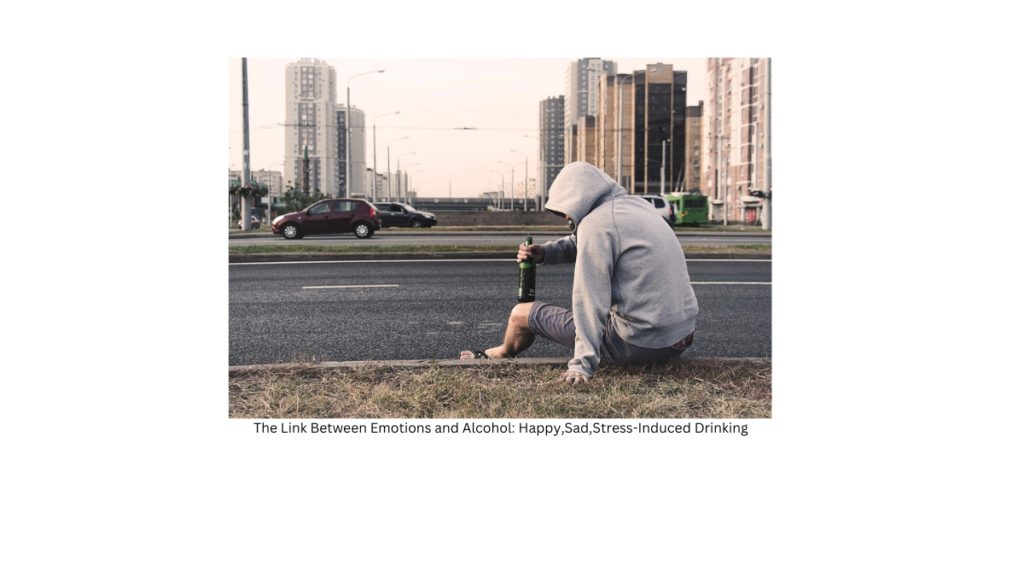
Many people choose to drink alcohol at such events as a way to celebrate or socialize, but it is important to remember that not everyone may want to or be able to consume alcohol. Some individuals may have religious or cultural beliefs that prohibit alcohol consumption, while others may choose not to drink for health or personal reasons.
It’s essential to respect the choices and preferences of others when it comes to alcohol consumption and provide alternative beverage options for those who do not drink or prefer non-alcoholic options. Celebrating and enjoying special occasions can be done without alcohol, and the most important thing is to create an inclusive and enjoyable atmosphere for all attendees.
The Importance of Self-Awareness
In conclusion,
the link between emotions and alcohol is complex and multifaceted. While alcohol can offer temporary relief and enhance positive emotions, it is not a long-term solution for coping with happiness, sadness, or stress. Developing self-awareness and healthy coping strategies is essential for maintaining physical and mental well-being.
If you find that alcohol has become your primary way of dealing with emotions, it may be beneficial to seek support from a healthcare professional or counselor. Understanding your triggers and finding healthier alternatives can lead to a more balanced and fulfilling life. Remember, it’s okay to seek help, and there are resources available to assist you in making positive changes


